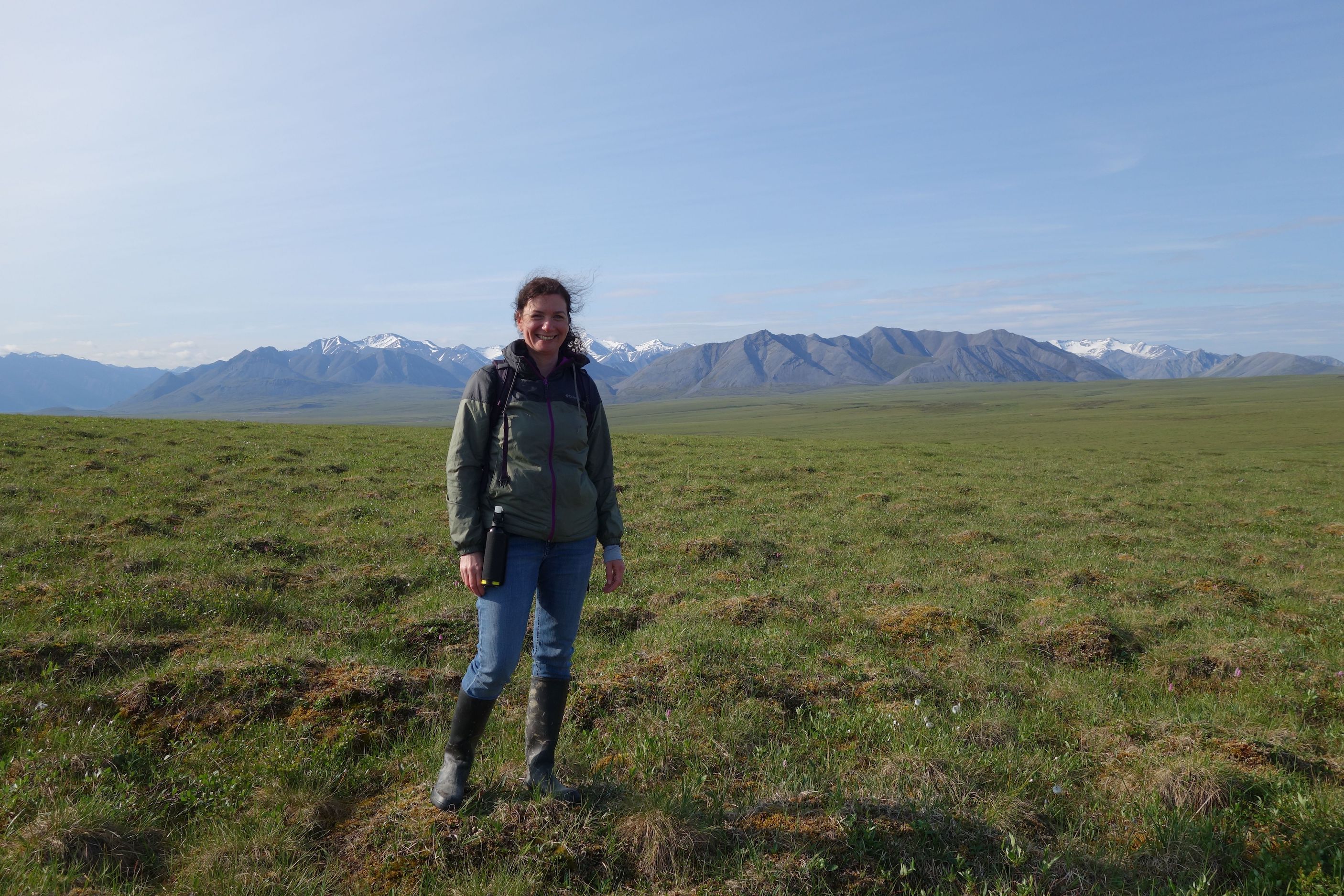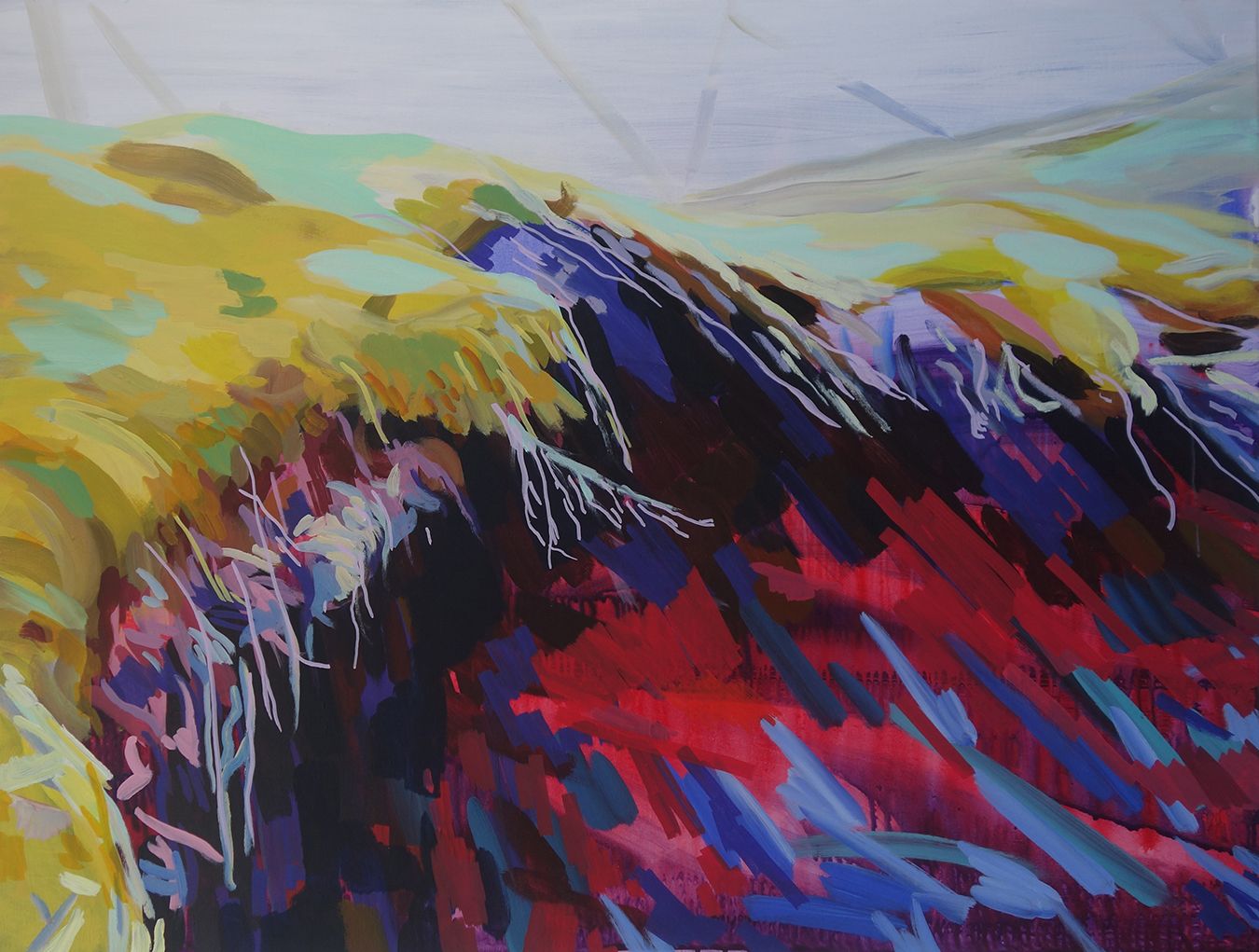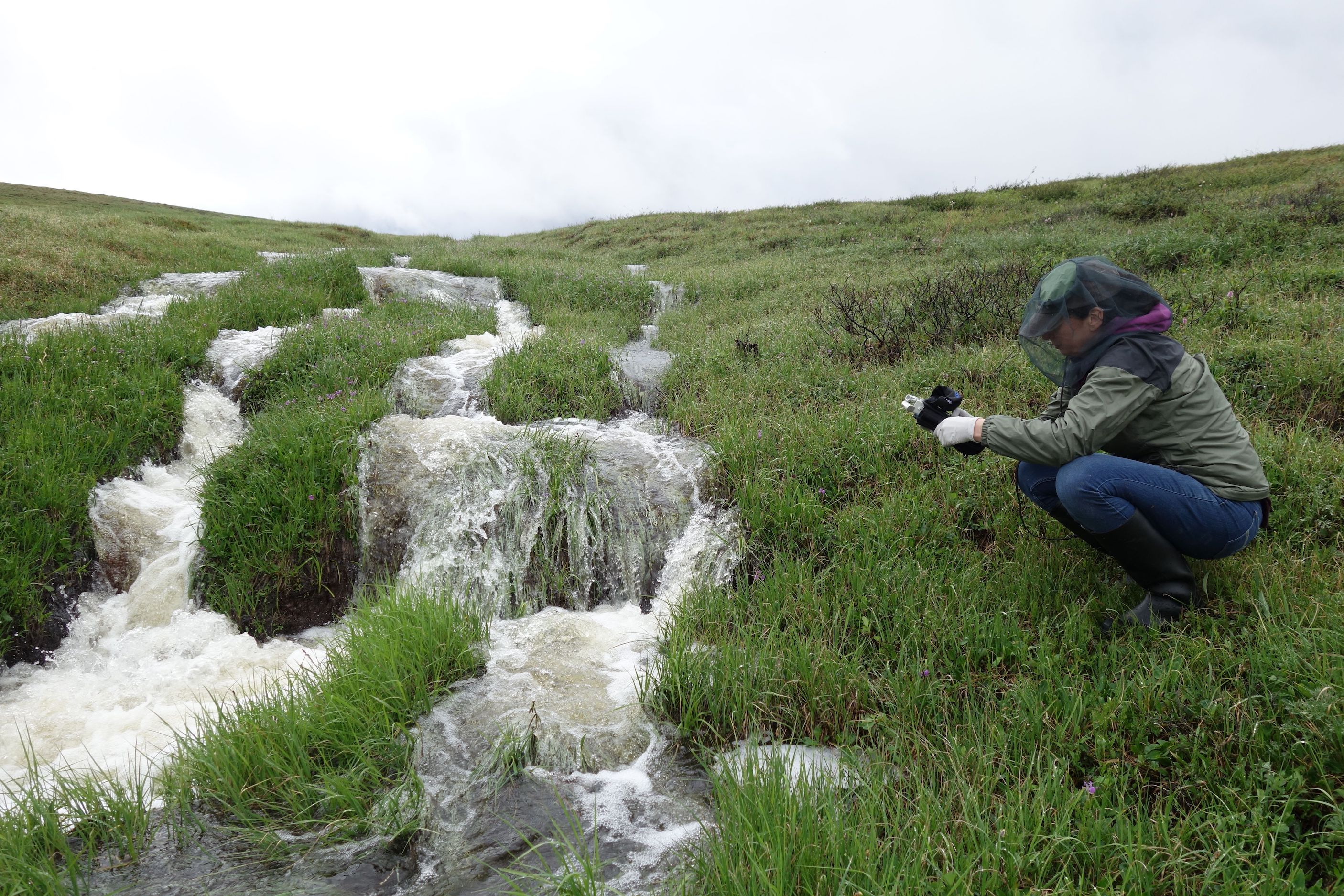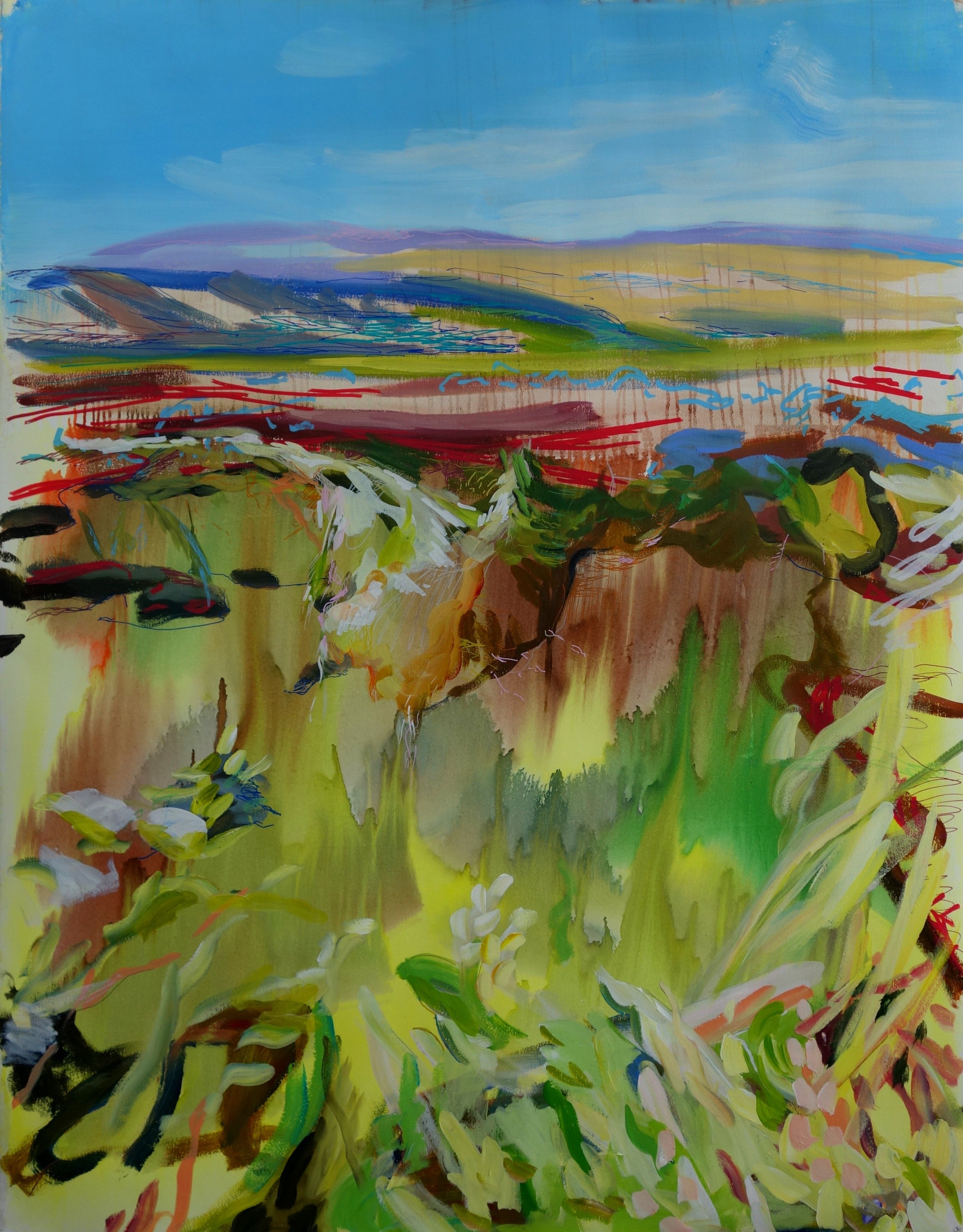Reverberations in Permafrost Thaw
March 17, 2022
Haley Dunleavy
907-474-6407
Update from 2019 Artist-in-Residence Nikki Lindt
When Nikki Lindt first traveled to the Arctic, she was no stranger to the ways climate change could alter ecosystems. For over two decades, Lindt has produced art centered around issues of global change and overdevelopment, often collaborating with scientists, philosophers, and sociologists. In preparation for her trip to document permafrost thaw in Alaska, she dove into scientific articles, incorporating phrases like “drunken forests” and “thermokarst collapse” into her vocabulary. Even still, upon her arrival, Lindt said, “I absolutely wasn't prepared when I saw the scale of everything that was happening.”

Artist Nikki Lindt stands on the tundra near Toolik Field Station. |

Lindt's field sketch titled "Torn Between Us" depicts a permafrost thaw collapse. |
In Lindt’s new multi-media project, Tumbling Forests of the North, vivid green dashes and hot pink highlights capture the vibrancy of the Arctic tundra. Born in part after an artist residency at Toolik Field Station, Lindt’s immersive project combines travel sketches, diary entries, and looped audio recordings of thawing permafrost, with its metronomic-like dripping. Each component of the project documents the effects of climate change on remote Arctic landscapes. Together, the pieces place the beauty of the tundra against the urgency of Arctic change. What emerges is the tension that resonates in between.
Lindt visited Toolik in 2019 as an artist-in-residence after spending the previous summer exploring and documenting permafrost thaw in the boreal forest with the Permafrost Laboratory at University of Alaska Fairbanks’ Geophysical Institute. Based at Toolik for five days, Lindt explored the nearby tundra. There, she became taken by the duality of the landscape changes she witnessed: the mix of inspiration and terror, at once. Human-caused climate change had “such a strong fingerprint in a place that you feel is so remote,” Lindt said. “At the same time, Alaska is just so grand and beautiful. There was just this lush growth and vitality coming out of these exact same places.”

Nikki Lindt stoops by an Arctic stream to capture audio recordings of the tundra.
In creating this exhibit, Lindt said the sounds of water dripping from thawing ground were particularly striking for her. “The continuous sound, all summer long, all spring long, all fall long. It's somewhat meditative.” Lindt added, “Gentle, but relentless.”
While at Toolik, Lindt talked with numerous scientists, including researchers Ellen Dorrepaal, George Kling, Breck Bowden, and Jason Dobkowski, and learned about the many factors at play in a changing Arctic. “It showed me how many people were looking at the same problem from all these different angles,” Lindt said. “That enriched me. It was very inspiring.” She added, “I'm a huge believer in collaboration. I feel at this point it's our way forward.”

In Nikki Lindt's field sketch "Ghost Forest", vertical lines rise up from a colorful tundra.
Lindt said her conversations with scientists helped ground her work in ecological knowledge. For example, in her sketches, vertical lines rising up from the tundra act as substitutes for a number of things: greenhouse gas emissions, underground forces from freeze-thaw cycles both pushing up and collapsing down, and, of course, field scientists’ endless flagging of study sites. Yet at the same time, Lindt said she expands upon her work’s grounding in science with emotion. “Artists are really, really good at getting in the uncomfortable nooks [of emotions] and working some of that out,” Lindt said. That processing of emotions, she added, can sometimes be helpful for viewers of her artwork to grasp at the realities of climate change.
Lindt’s work from her time at Toolik has recently been featured in the international project Extraction: Art on the Edge of the Abyss, included in the Summer 2021 issue of Orion magazine, and in a fall show, Fire and Ice, at the Cummings Art Center at Connecticut College. Although Lindt has begun a new project recording underground audio in the natural and urban places around New York City, she hopes to return to the Arctic in 2022 to continue capturing the ticking soundscapes of permafrost thaw.


